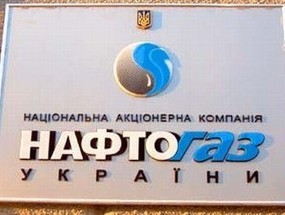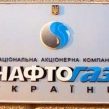
Security Service Raids Ukrainian State Gas Companies
Publication: Eurasia Daily Monitor Volume: 6 Issue: 44
By:

On March 4 and 5 armed units of the Security Service of Ukraine (SBU) conducted raids on the headquarters of Naftohaz Ukrainy, the state-owned oil and gas company, and UkrTranshaz, the operator of the Ukrainian gas pipeline company. According to a March 5 report by the UNIAN press service, the raids were part of a recent SBU investigation into the acquisition by Naftohaz of 11 billion cubic meters of gas that once belonged to RosUkrEnergo (RUE), the shady Swiss-based middleman company, 50 percent of which is owned by Gazprom and 50 percent by Dmytro Firtash and Ivan Fursin, two Ukrainian businessmen.
The gas is kept in Ukrainian underground storage facilities and was formally taken over by Naftohaz after RUE’s $1.7 billion debt to Gazprom was transferred to Ukraine as prepayment for the transit of Russian gas to Europe. Ukrainian authorities took possession of this gas and began clearing it through customs, when the head of the Customs Service, Valeriy Khoroshkovskyi, a wealthy businessman with ties to Dmytro Firtash, blocked the clearance.
In response, the government headed by Yulia Tymoshenko relieved Khoroshkovskyi of his post, but Ukrainian President Viktor Yushchenko then appointed him deputy head of the SBU, apparently as part of his ongoing conflict with Tymoshenko.
Khoroshkovskyi told parliament that the seizure of RUE’s gas was illegal and was carried out by "a criminal group that included the government leadership" (Itar-Tass March 4). Interestingly enough, Gazprom, the 50 percent of owner of RUE, did not file any complaint about its gas being stolen by the Tymoshenko government. The only objection apparently came from Firtash, who was caught in the desperate situation of not being able to meet his contractual obligations to deliver 5 million cubic meters of gas a day to Poland or to supply his clients in Hungary.
Kommersant reported on February 20 that Gazprom had accused Firtash’s Hungarian company EMFESZ Kft of illegally importing gas from Ukraine and had filed an official complaint with the Hungarian Energy Commission. One high-level manager of Gazprom Export was quoted in Kommersant as saying, "We need to sort out why the Hungarians are receiving gas that was not contracted for." However, Alexander Medvedev, the head of Gazprom Export, is also a member of the RUE coordination council and was probably fully aware of what RUE was doing in Hungary.
During the raid on Naftohaz headquarters on March 4, members of parliament from the Yulia Tymoshenko bloc rushed to the building to intervene with the armed SBU unit and prevent them from seizing the original signed copy of the January 19, 2009, contract with Gazprom on gas purchases and transit. Serhiy Davydenko, the chief of Naftohaz’s legal department, told the press that the original contract was needed in order to clear customs for Russian gas bound for Europe and for domestic Ukrainian consumption (Moscow Times, March 5).
First Deputy Prime Minister Oleksandr Turchynov told a press conference that he had urged the security agents to ignore their orders: "You must not become a tool of criminals and corrupt officials who, with the consent of the president, run the [security] service or coordinate its activities" (Moscow Times, March 5). According to the Ukrayinska Pravda website, the SBU agents eventually left the building without the original contract.
The key question in the dispute is why Gazprom, an interested party, is not contesting the legality of Naftohaz taking possession of the gas. The entire episode points to the possibility that Yushchenko and Khoroshkovskyi are, in fact, protecting Firtash’s interests. This would support Tymoshenko’s long-held view that Firtash was not only helping the pro-Russian Ukrainian Party of Regions but also Yushchenko personally. What Tymoshenko carefully avoids mentioning is that Firtash enjoyed the long-time support of Vladimir Putin and Gazprom. As Gazprom’s (and Putin’s) reputations began to suffer from their association with Firtash and RUE, they decided to break ties with the company. The RUE scheme was so muddled and opaque, however, that when it began unraveling it backfired on all the involved parties.
In a related matter, the Russian and Ukrainian auditing chambers announced that they had begun a joint investigation into the financial dealings of RUE (UNIAN, March 5). The Russian auditing chamber will look into RUE’s books for 2007 and 2008, while the Ukrainian auditors intend to begin looking as far back as 2006. One unnamed Ukrainian expert told UNIAN that the use of the state auditing commission to conduct such an investigation was highly unusual, since legally it could only audit state-owned companies, which RUE is not.
The 11 billion cubic meters of gas formerly owned by RUE, which is hidden in an underground cave in Western Ukraine, is critically important as technical gas for powering the compressing stations that keep Russian gas flowing to Europe. If the Yushchenko administration returns it to Firtash, it would only harm Ukraine’s ability to transit gas reliably and would give aid and comfort to one of the most bizarre gas scams of the century.




